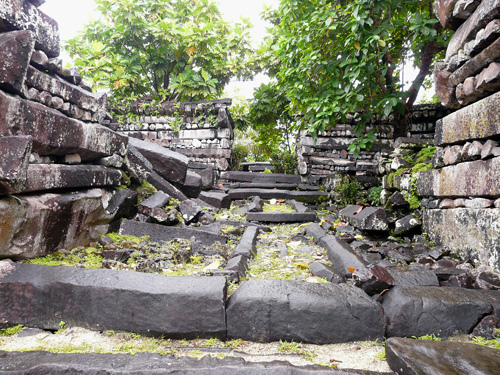In the next segment, Christ shows Elisha a vision of the kingdom he will help to establish; He lists the islands and defines the borders. When reading how this vision unfolds, all I could picture was some huge sweeping IMAX-3D helicopter shot of the Philippines : )
In any case, I love maps and geography, so this part was fun--putting the pieces of this kingdom together. So as not to bore all the rest of you, this island kingdom includes the Philippines, Taiwan, Borneo, and all the other small islands in the South China and Philippines Seas, and even farther out into the Pacific. Its borders are the small islands between the Philippines and Indonesia in the south, Taiwan in the north, Micronesia in the east, and the Asian coastal islands in the west. Basically the borders of the island kingdom look pretty much something like THIS.
~ In the Kingdom ~
Luzon = "this land", "this large island"
Taiwan = "large island in the north"
Batan & Babuyan islands = "small islands between these two large islands"
Mindanao = "large island in the south"
Visayas = "many islands between this land and that one"
Palawan = "long thin island in the west"
Spratly & Paracel islands = "many small islands in the west"
Every other small island in the South China Sea = "every small island between the long island and the large island in the north, even every one which is near unto the shore of the Asian Continent"
Borneo = "very large island in the southwest"
Every other Philippine island = "all the islands between this land and the south island"
Talaud & Sangihe islands = "small islands south of the southern island"
Ponape (Pohnpei) = eastern "island where there is an ancient ruin" (Nan Madol, check it out HERE)
~ Not immediately in the Kingdom (may be, if desired) ~
Indonesia & New Guinea = "larger islands in the south"
Also, Christ says that any other land can join if they desire but don't really need to since He will establish many kingdoms in many lands according to the different people there, and they will all be united anyway after He returns.
Christ finishes this segment with a curse upon anyone who keeps the people of this kingdom down, that they will lose their power and be cast down and trodden upon, for all these lands are given to Christ by the Father and preserved as an inheritance for the Gentiles who are bound through the remnant of the Tribes of Israel. God remembers His covenants to Israel and promises to the Gentiles. I think there's a definite distinction between those last two phrases--covenants to Israel and promises to the Gentiles. God has always made personal covenants with His chosen people, but there are none, necessarily, to the Gentiles until they are adopted into the House of Israel and choose Him as their God. At the same time, this was one of the main purposes of the scattering of Israel, that those remnants might become God's salt, light, and leaven to flavor, enlighten, and raise up all the peoples of the earth (see Matt 5, 13). This will also be a theme in the early parts of the Aklatan, as they recount the two primary waves of ancestors arriving in the islands.
Recommendations
Hello! Shalom! Aloha! Mabuhay!
If this is your first visit to Modern Apocrypha, I have only two recommendations for continuing on with minimal confusion:
1) Please begin with the first introductory post (found HERE) and work your way forward. Almost all the posts on this blog flow chronologically and will make more sense with the background and context of previous ones. Jumping in anywhere might be disorienting.
2) Please read along in the texts posted off to the right. I try not to summarize too much in the commentary and discussion, and being at least somewhat familiar with what we're discussing or I'm commenting on will be most beneficial and edifying for all involved. Plus, going along with the theme of this blog, any hidden truths to be brought to light will be found within the text itself and not necessarily within my ramblings.
Okay, fine, three recommendations:
3) Please read with an open heart, mind, and spirit. See what truths you can find in these works--ones which speak to you. Namaste : )
If this is your first visit to Modern Apocrypha, I have only two recommendations for continuing on with minimal confusion:
1) Please begin with the first introductory post (found HERE) and work your way forward. Almost all the posts on this blog flow chronologically and will make more sense with the background and context of previous ones. Jumping in anywhere might be disorienting.
2) Please read along in the texts posted off to the right. I try not to summarize too much in the commentary and discussion, and being at least somewhat familiar with what we're discussing or I'm commenting on will be most beneficial and edifying for all involved. Plus, going along with the theme of this blog, any hidden truths to be brought to light will be found within the text itself and not necessarily within my ramblings.
Okay, fine, three recommendations:
3) Please read with an open heart, mind, and spirit. See what truths you can find in these works--ones which speak to you. Namaste : )


No comments:
Post a Comment